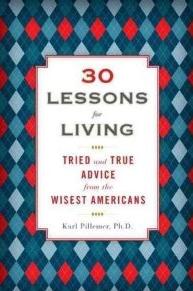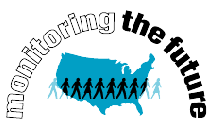 In a recent Science Times article in the New York Times, Richard A. Friedman, professor of clinical psychiatry at Weill Cornell Medical College, explores a growing trend in academic circles to view depression as a “natural” condition that, like ordinary sadness, may provide evolutionary advantages. Separate studies by psychologists Paul W. Andrews (U. of Virginia) and Joseph P. Forgas (U. of New S. Wales) suggested that something about sadness might improve analytical reasoning and the capacity for critical, accurate detection of deceptive communication.
In a recent Science Times article in the New York Times, Richard A. Friedman, professor of clinical psychiatry at Weill Cornell Medical College, explores a growing trend in academic circles to view depression as a “natural” condition that, like ordinary sadness, may provide evolutionary advantages. Separate studies by psychologists Paul W. Andrews (U. of Virginia) and Joseph P. Forgas (U. of New S. Wales) suggested that something about sadness might improve analytical reasoning and the capacity for critical, accurate detection of deceptive communication.
Advice From Life’s Graying Edge
 A new book by Karl Pillemer, entitled 30 Lessons for Living: Tried and True Advice from the Wisest Americans (Hudson Street Press), offers practical advice from more than 1,000 older Americans from different economic, educational and occupational strata about how to conduct a successful and satisfying life. The book has been named to the list of “Best Self-Help Books of 2011″ by Library Journal.
A new book by Karl Pillemer, entitled 30 Lessons for Living: Tried and True Advice from the Wisest Americans (Hudson Street Press), offers practical advice from more than 1,000 older Americans from different economic, educational and occupational strata about how to conduct a successful and satisfying life. The book has been named to the list of “Best Self-Help Books of 2011″ by Library Journal.
When Your Teen Misbehaves
 Children who misbehave usually do so for a purpose, taught U.S. psychiatrist and educator Rudolf Dreikurs. Misbehaving children and teens are acting out a feeling or need that they are unable to convey or express. Such a need might be: a need for attention when s/he is feeling ignored or neglected; a resentment over being controlled; a fear that s/he is not loved or lovable; or a feeling of inadequacy or helplessness.
Children who misbehave usually do so for a purpose, taught U.S. psychiatrist and educator Rudolf Dreikurs. Misbehaving children and teens are acting out a feeling or need that they are unable to convey or express. Such a need might be: a need for attention when s/he is feeling ignored or neglected; a resentment over being controlled; a fear that s/he is not loved or lovable; or a feeling of inadequacy or helplessness.
The Joy of Quiet

The average American spends at least eight and a half hours a day in front of a screen of one sort or another. The average American teenager sends or receives 75 text messages a day. Many of us are finding ourselves controlled by the many time-saving devices that have also considerably expanded our lives.
Out the Door and Into 2012
 From the New York Times Editorial, January 1, 2012
From the New York Times Editorial, January 1, 2012
Perhaps you have a New Year’s Day of your own — a day when it suddenly feels as though you’ve truly left the old year behind. It may be the day you no longer have to think twice when putting the date on a check, if you still write checks, that is. Perhaps your new year started the moment the days began lengthening just before Christmas. Or perhaps you hold off for the vernal equinox (March 20 in 2012), when New Year used to be celebrated and when, in many places, you can feel the newness of the year about to burst out of the ground.
Polling Teen Use of Drugs and Alcohol
 The Monitoring the Future study, sponsored by the National Institute on Drug Abuse and designed and conducted by the University of Michigan, has been polling teens since 1975. Its most recent survey reports that alcohol and cigarette use by students in grades 8, 10, and 12 are at their lowest point since the project has been collecting the data. The good news is offset by a finding of high rates of abuse in other tobacco products, marijuana, and prescription drugs.
The Monitoring the Future study, sponsored by the National Institute on Drug Abuse and designed and conducted by the University of Michigan, has been polling teens since 1975. Its most recent survey reports that alcohol and cigarette use by students in grades 8, 10, and 12 are at their lowest point since the project has been collecting the data. The good news is offset by a finding of high rates of abuse in other tobacco products, marijuana, and prescription drugs.
How Parenthood Makes Life Meaningful and How Marriage Makes Parenthood Bearable
 A new State of Our Unions report (entitled “When Baby Makes Three”) from the National Marriage Project (NMP)* at the University of Virginia and the Center for Marriage and Families draws on data from three nationally representative surveys (2,870 couples in total) to answer four important questions about contemporary family life:
A new State of Our Unions report (entitled “When Baby Makes Three”) from the National Marriage Project (NMP)* at the University of Virginia and the Center for Marriage and Families draws on data from three nationally representative surveys (2,870 couples in total) to answer four important questions about contemporary family life:
Feeding the Emotional Bank Account
 From marriage researcher Dr. John Gottman’s experience working with thousands of couples, he determined that a long-term reationship is likely to be successful if, very simply, there are more good moments than bad moments. (He speaks of a ratio of at least 5 positive to 1 negative interactions as a predictor of a satisfying relationship.) Where the “emotional bank account” has been fed with a multitude of generous acts, kind words and thoughtful behaviors, negative interactions are more likely to be dealt with with greater equanimity or let slide.
From marriage researcher Dr. John Gottman’s experience working with thousands of couples, he determined that a long-term reationship is likely to be successful if, very simply, there are more good moments than bad moments. (He speaks of a ratio of at least 5 positive to 1 negative interactions as a predictor of a satisfying relationship.) Where the “emotional bank account” has been fed with a multitude of generous acts, kind words and thoughtful behaviors, negative interactions are more likely to be dealt with with greater equanimity or let slide.